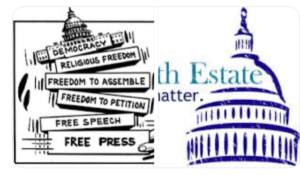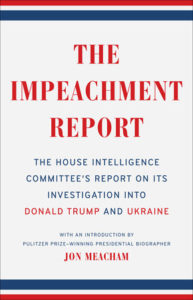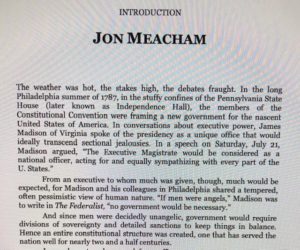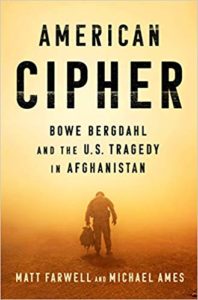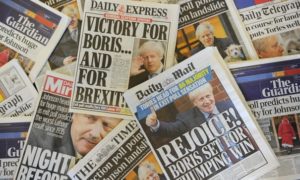Dark Waters
December 15, 2019See it. #MustSee Excellent.
“The system is rigged. “They want us to think they protect us, but that’s a lie. WE protect us. We do. Nobody else.”
The film is based on the NYTimes article:
“The Lawyer Who Became DuPont’s Worst Nightmare”
Jan. 6, 2016
Rob Bilott on land owned by the Tennants near Parkersburg, W.Va.Credit…Bryan Schutmaat for The New York Times
The Lawyer Who Became DuPont’s Worst Nightmare
Rob Bilott was a corporate defense attorney for eight years. Then he took on an environmental suit that would upend his entire career — and expose a brazen, decades-long history of chemical pollution.
Rob Bilott on land owned by the Tennants near Parkersburg, W.Va.Credit…Bryan Schutmaat for The New York Times
By
‘Just months before Rob Bilott made partner at Taft Stettinius & Hollister, he received a call on his direct line from a cattle farmer. The farmer, Wilbur Tennant of Parkersburg, W.Va., said that his cows were dying left and right. He believed that the DuPont chemical company, which until recently operated a site in Parkersburg that is more than 35 times the size of the Pentagon, was responsible. Tennant had tried to seek help locally, he said, but DuPont just about owned the entire town. He had been spurned not only by Parkersburg’s lawyers but also by its politicians, journalists, doctors and veterinarians. The farmer was angry and spoke in a heavy Appalachian accent. Bilott struggled to make sense of everything he was saying. He might have hung up had Tennant not blurted out the name of Bilott’s grandmother, Alma Holland White.
White had lived in Vienna, a northern suburb of Parkersburg, and as a child, Bilott often visited her in the summers. In 1973 she brought him to the cattle farm belonging to the Tennants’ neighbors, the Grahams, with whom White was friendly. Bilott spent the weekend riding horses, milking cows and watching Secretariat win the Triple Crown on TV. He was 7 years old. The visit to the Grahams’ farm was one of his happiest childhood memories.
When the Grahams heard in 1998 that Wilbur Tennant was looking for legal help, they remembered Bilott, White’s grandson, who had grown up to become an environmental lawyer. They did not understand, however, that Bilott was not the right kind of environmental lawyer. He did not represent plaintiffs or private citizens. Like the other 200 lawyers at Taft, a firm founded in 1885 and tied historically to the family of President William Howard Taft, Bilott worked almost exclusively for large corporate clients. His specialty was defending chemical companies. Several times, Bilott had even worked on cases with DuPont lawyers. Nevertheless, as a favor to his grandmother, he agreed to meet the farmer. ‘‘It just felt like the right thing to do,’’ he says today. ‘‘I felt a connection to those folks.’’’
Credit…Bryan Schutmaat for The New York Times.]
The connection was not obvious at their first meeting. About a week after his phone call, Tennant drove from Parkersburg with his wife to Taft’s headquarters in downtown Cincinnati. They hauled cardboard boxes containing videotapes, photographs and documents into the firm’s glassed-in reception area on the 18th floor, where they sat in gray midcentury-modern couches beneath an oil portrait of one of Taft’s founders. Tennant — burly and nearly six feet tall, wearing jeans, a plaid flannel shirt and a baseball cap — did not resemble a typical Taft client. ‘‘He didn’t show up at our offices looking like a bank vice president,’’ says Thomas Terp, a partner who was Bilott’s supervisor. ‘‘Let’s put it that way.’’
VOX
Dark Waters isn’t your typical Todd Haynes movie. The director of a varied array of movies like Velvet Goldmine, Far From Heaven, and Carol is known for his pioneering queer cinema and lush, haunting tales of love and fear.
A whistleblower drama based on a real-life story — more a work of social realism and protest than anything else — isn’t an obvious fit for his style, then. Yet Dark Waters still works, thanks to a compelling story and performance from Mark Ruffalo. Based on a New York Times article titled “The Lawyer Who Became DuPont’s Worst Nightmare,” the movie tells the story of Rob Bilott, an attorney at a large corporate firm in Cincinnati who discovers that the people in his West Virginia hometown are becoming ill and dying from mysterious causes that seem linked to the DuPont Chemical plant in town.
https://www.vox.com/culture/2019/12/3/20970804/dark-waters-interview-todd-haynes-mark-ruffalo
IMPEACH
These editorial boards have all called for impeachment.
-NY Times
-Washington Post
-USA Today
-LA Times
-Salt Lake Tribune
-Tampa Bay Times
-Orlando Sentinel
-Boston Globe
-NY Daily News
-Chicago Sun-Times
-Philadelphia Inquirer
-SF Chronicle
Mother Jones, was an Irish-born American schoolteacher and dressmaker who became a prominent organized labor representative, community organizer, and activist. She helped coordinate major strikes and co-founded the Industrial Workers of the World. [1837-1930]
Mother Jones Magazine
The Growing List of Damning Newspaper Editorials Demanding Trump’s Impeachment
“We’ve seen enough.”
The New York Times: “Impeach.”
To resist the pull of partisanship, Republicans and Democrats alike ought to ask themselves the same question: Would they put up with a Democratic president using the power of the White House this way? Then they should consider the facts, the architecture and aspirations of the Constitution and the call of history. In that light, there can be only one responsible judgment: to cast a vote to impeach, to send a message not only to this president but to future ones.
The Washington Post: “The case for impeachment“
We believe Mr. Trump should receive a full trial in the Senate, and it is our hope that more senior officials will decide or be required to testify during that proceeding, so that senators, and the country, can make a fair and considered judgment about whether Mr. Trump should be removed from office. We have reserved judgment on that question. What is important, for now, is that the House determine whether Mr. Trump’s actions constituted an abuse of power meriting his impeachment and trial.
USA Today: Impeach Donald Trump
The current board has made no secret of our low regard for Trump’s character and conduct. Yet, as fellow passengers on the ship of state, we had hoped the captain would succeed. And, until recently, we believed that impeachment proceedings would be unhealthier for an already polarized nation than simply leaving Trump’s fate up to voters next November.
Los Angeles Times: “We’ve seen enough. Trump should be impeached.”
The Times’ editorial board was a reluctant convert to the impeachment cause. We worried that impeaching Trump on essentially a party-line vote would be divisive. It is also highly likely that Trump would be—will be—acquitted by the Republican-controlled Senate, and that, rightly or wrongly, he would point to that in his reelection campaign as exoneration.
But those concerns must yield to the overwhelming evidence that Trump perverted U.S. foreign policy for his own political gain. That sort of misconduct is outrageous and corrosive of democracy. It can’t be ignored by the House, and it merits a full trial by the Senate on whether to remove him from office.
The Boston Globe: “Impeach the president“
Impeachment does not require a crime. The Constitution entrusts Congress with the impeachment power in order to protect Americans from a president who is betraying their interests. And it is very much in Americans’ interests to maintain checks and balances in the federal government; to have a foreign policy that the world can trust is based on our national interest instead of the president’s personal needs; to control federal spending through their elected representatives; to vote in fair elections untainted by foreign interference. For generations, Americans have enjoyed those privileges. What’s at stake now is whether we will keep them. The facts show that the president has threatened this country’s core values and the integrity of our democracy. Congress now has a duty to future generations to impeach him.
The Philadelphia Inquirer: “Impeach President Donald Trump“
The impeachment investigation has been an attempt to get to the truth about the president’s abuse of power. One career civil servant after another has testified to the same facts confirming the whistle-blower complaint that triggered this investigation. Those facts have not been disputed, even by most of the president’s defenders.
That ensures that the shocking language describing Trump’s actions—“high crimes and misdemeanors,” “threat to national security,” and “clear and present danger”—are not partisan weapons.
And that is why we endorse a vote to impeach the president. While his removal from office is unlikely, his crimes against the country, and the Constitution, warrant that outcome.
The San Francisco Chronicle: “What is the alternative to impeachment?“
It helps, however, to consider what it would mean not to impeach the president—to leave him in the company of the vast majority of presidents who faced no such rebuke. The pernicious effect would be to elevate the conduct memorialized in the articles of impeachment to the status of acceptable presidential behavior.
The president compromised our nation’s best interests for pure political self-profit, as baldly as a Chicago alderman holding up a zoning change for a bribe. Trump has brought impeachment upon himself.
The New York Daily News: “The truth hurts: the House Intelligence Committee presents a coherent and compelling case for impeachment“
There may be no single, smoking gun, but there’s ample acrid black stuff rising from the White House.
The Orlando Sentinel: “The House should vote to impeach Trump, and the Senate should remove him from office“
The question was never if Donald Trump did something wrong.
Of course he did. The president of the United States got on the phone and asked the leader of a foreign power to investigate a domestic political opponent. Only the most cynical partisan would think that’s OK.
The question is whether he ought to be impeached for it, and the answer is yes.
The Tampa Bay Times: “The case for impeachment“
With reluctance, we conclude the U.S. House of Representatives has enough reason to justify the impeachment of President Donald Trump. We harbor no illusions that the president’s impeachment by the House will lead to his removal from office by the Senate. But we hope the impeachment process and a trial in the Senate will give voters a more complete picture of Trump’s conduct, because they will deliver the ultimate judgment on his performance in November.
The Salt Lake Tribune: “Impeachment proceeds as it should“
To paraphrase Mr. Jefferson,
When in the course of human events, it becomes necessary to confront the clear and unrefuted wrongdoing of someone in high political office, and to assume among the powers granted to Congress by the U.S. Constitution the duty to oversee, investigate and, if warranted, impeach and remove the president of the United States, a decent respect to the opinions of mankind requires that the Congress should declare the causes which impel them to the action.
ABOUT THE IMPEACHMENT REPORT
The official report from the House Intelligence Committee on Donald Trump’s secret pressure campaign against Ukraine, featuring an exclusive introduction by Pulitzer Prize–winning author and biographer Jon Meacham
For only the fourth time in American history, the House of Representatives has conducted an impeachment inquiry into a sitting United States president. This landmark document details the findings of the House Intelligence Committee’s historic investigation of whether President Donald J. Trump committed impeachable offenses when he sought to have Ukraine announce investigations of former vice president Joe Biden and his son Hunter.
Penetrating a dense web of connected activity by the president, his ambassador Gordon Sondland, his personal attorney Rudolph Giuliani, and many others, these pages offer a damning, blow-by-blow account of the president’s attempts to “use the powers of his office to solicit foreign interference on his behalf in the 2020 election” and his subsequent attempts to obstruct the House investigation into his actions. Published here with an introduction offering critical context from bestselling presidential historian Jon Meacham, The Impeachment Reportis necessary reading for every American concerned about the fate of our democracy.
Introduction written by historian Jon Meacham.
[Jon Meacham is a Pulitzer Prize-winning biographer. He is the author of the New York Times bestsellers Thomas Jefferson: The Art of Power; American Lion: Andrew Jackson in the White House; Franklin and Winston: An Intimate Portrait of an Epic Friendship; Destiny and Power: The American Odyssey of George Herbert Walker Bush; Songs of America; and The Soul of America: The Battle for Our Better Angels. He is a distinguished visiting professor at Vanderbilt University, a contributing writer for The New York Times Book Review, and a fellow of the Society of American Historians.]
#Newseum
Happy Bill of Rights Day! Today we celebrate the anniversary of the ratification of the first 10 amendments to the U.S. Constitution. This important founding document enshrined greater protection of individual liberties, including the freedoms guaranteed by the First Amendment.
Bowe.
“American Cipher: Bowe Bergdahl”
Season 2019 Episode 10 | 28m 47s
Marcia Franklin talks with Michael Ames about his book, “American Cipher: Bowe Bergdahl and the U.S. Tragedy in Afghanistan.” Bergdahl was a soldier from Hailey, Idaho, who walked off his base in Afghanistan in 2009 and was captured by the Taliban. He was held and tortured for five years. Ames and his co-author delve into Bergdahl’s childhood and the politics surrounding the search for him.
[Aired on Dec. 13, 2019
https://video.idahoptv.org/video/american-cipher-bowe-bergdahl-aed8vg/
AT WAR WITH THE TRUTH
U.S. officials constantly said they were making progress. They were not, and they knew it, an exclusive Post investigation found.
The Afghanistan papers
The Secret History of the War
“We were devoid of a fundamental understanding of Afghanistan–we didn’t know what we were doing.” Douglas Lute, a three-star Army general who served as the White House’s Afghan war czar during the Bush and Obama administrations, told government interviewers in 2015. He added: “What are trying to do here? We didn’t have the foggiest notion of what we were undertaking.”
With most speaking on the assumption that their remarks would not become public, U.S. officials acknowledged that their warfighting strategies were fatally flawed and that Washington wasted enormous sums of money trying to remake Afghanistan into a modern nation.
The interviews also highlight the U.S. government’s botched attempts to curtail runaway corruption, build a competent Afghan army and police force, and put a dent in Afghanistan’s thriving opium trade.
The U.S. government has not carried out a comprehensive accounting of how much ithas spent on the war in Afghanistan, but the costs are staggering.
UK
The Guardian
Sun 15 Dec 2019
What we learned about the media this election
The campaign saw an unprecedented level of criticism of British journalism
“While audiences of 20-somethings have largely abandoned television news altogether, BBC bulletins remain important for reaching older viewers who are more likely to back the Tories. And while print newspaper sales are collapsing and online news audiences growing, right-wing tabloids which relentlessly backed the Conservatives still sell millions of copies a day – and often indirectly help to set the agenda on television, radio, and online. Although it will be months before academic studies drill down in to the results, there remains a simple demographic divide on how people across the political spectrum get their news.
Ahead of the election there were concerns about foreign manipulation of the electoral process. Although there were some issues – the prime minister refused to let a report into Russian money be released pre-election, and Reddit suggested a Russian-linked account may have helped distribute leaked US-UK trade papers – ordinary, politicised Britons proved more than capable of creating their own fake posts.
Online audiences are so fragmented that information can reach millions of people without ever being seen by journalists or political campaigns.
The 2016 EU referendum and DT’s victory in the US presidential election focussed minds on the idea of under-the-radar, paid-for ‘dark ads’ which manipulate small groups of people to vote a certain way. But transparency tools introduced by Facebook and Google, although flawed, made this easier to track.
They suggested political advertising in the UK is drifting towards the US model, with blanket ad buys on sites such as YouTube resembling television advertising designed to carpet-bomb voters with simple messages, rather than the more laborious task of manipulating small groups below the radar.
It was the election where politicians realised they could attack the media with few downsides. Boris Johnson’s decision to skip a one-on-one primetime television interview with Andrew Neil provoked fury from Labour, especially after they had agreed to put Corbyn up for scrutiny. But Tory strategists decided – apparently correctly – that a tough interview with Neil could be substantially more damaging than a few stories about Johnson refusing to take part in a television programme. The real concern, according to Tory campaign insiders, was about clips from the interview going viral.”
DT administration toys with avoiding future presidential debates completely. [Newsweek ‘DT said he would consider skipping any presidential debates related to the 2020 election in a tweet posted on 12.11.19.]”
[Guardian full article]



